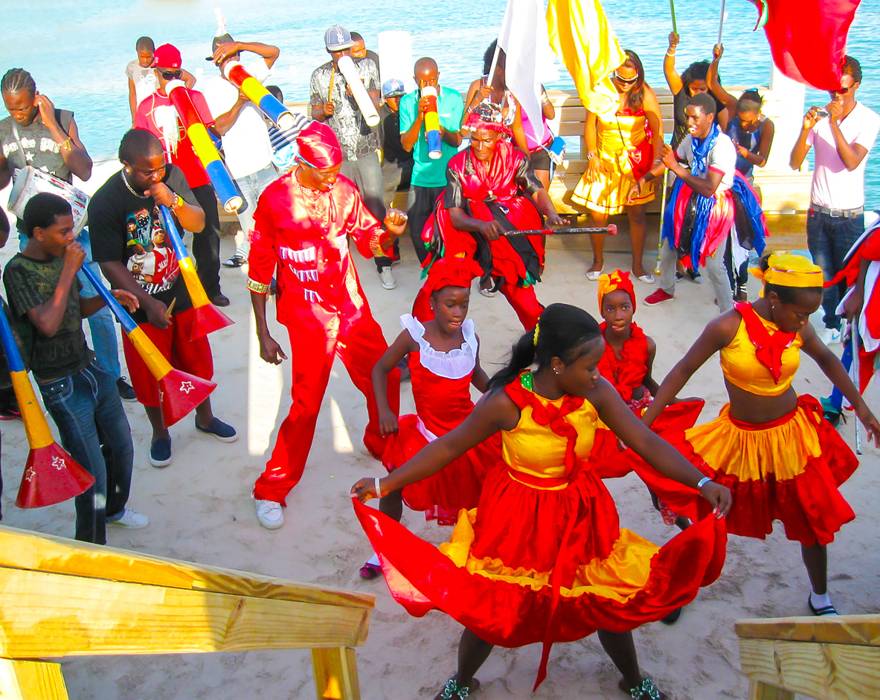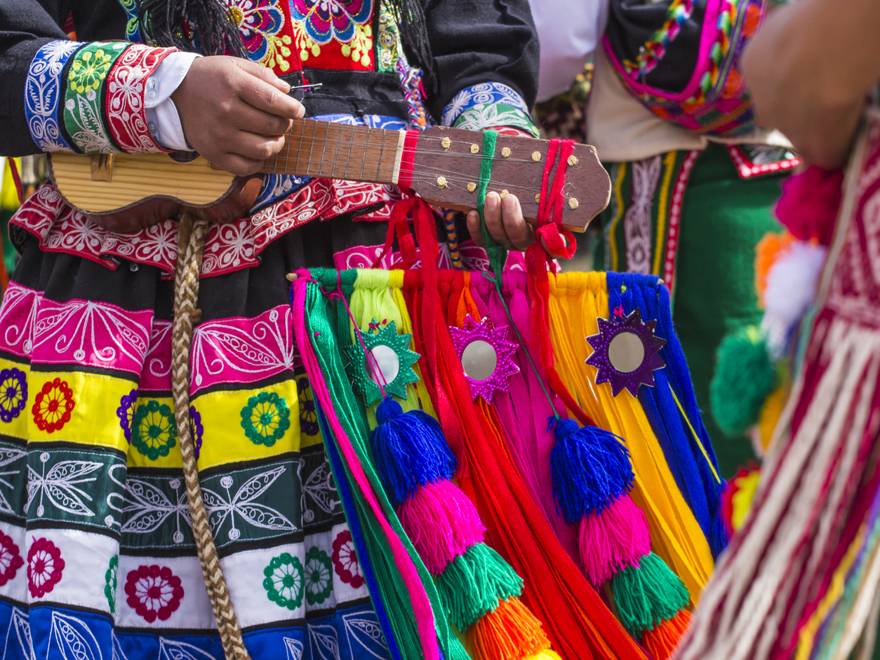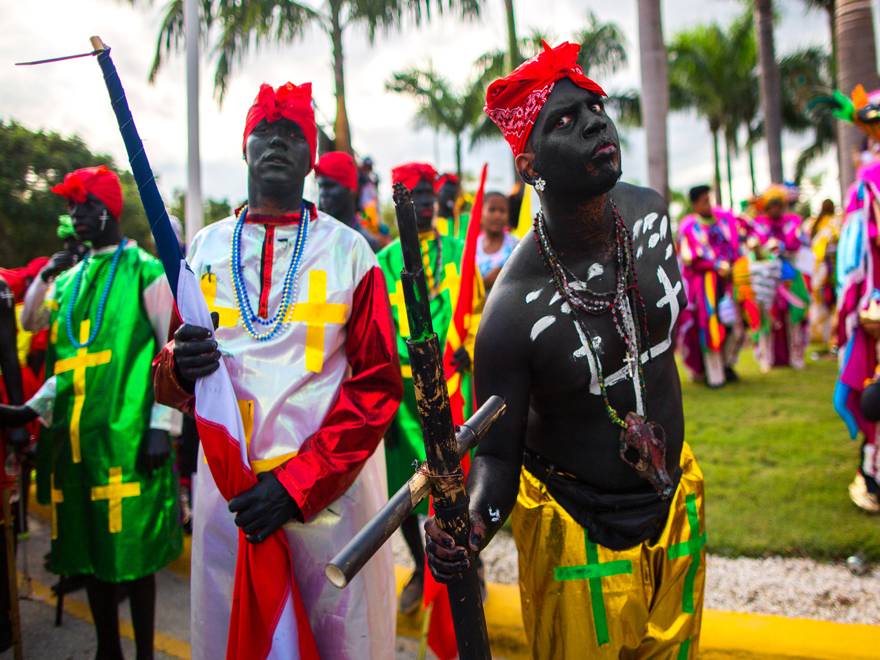
19 Dec Discover Dominican Music and Folklore
Discover Dominican Music and Folklore
The biggest tourist attraction in the Dominican Republic are its extensive beaches with fine white sand and turquoise waters. However, the country has many more attractions that are well worth enjoying as a family or as a couple while on holiday. Two of them are its music and its festivals, where Punta Cana stands out, one of the regions with the most action and plans in the Dominican Republic.
Due to the Dominican Republic’s historical proximity to Spain, and the settlers who came here, the most important festivals and music are very similar in both countries. Specifically, Dominican inhabitants are known for their musical and dancing skills, to the point where you’ll find them dancing anywhere where a good song is being played.
Traditional music in the Dominican Republic
Above all, there are two musical genres that are synonymous with the Dominican Republic: merengue and bachata, although you can find endless styles of dance, music and folklore in the Dominican country.
Merengue
The merengue is the national music and dance of the Dominican Republic. In 2016, it was declared a Masterpiece of the Oral and Intangible Heritage of Humanity by UNESCO. If you speak with any Dominican, they will help you grasp just how much it is engrained in the essence of any inhabitant of the country, as its lyric is shared and transmitted every day in real life stories, and the instruments that are used reflect the identity of the Dominican Republic:
- The güira, from the island’s Taino tradition; a cylinder composed of metal with a brush to play it from top to bottom.
- The yembé, a drum of African origin.
- The accordion, from Spanish culture.

Bachata
Bachata, despite not being the traditional music of the Dominican Republic, has gained a lot of popularity in recent years, both in the Dominican Republic and throughout the world. Originating from Bolero, this sensual and slow music was considered the music of the lower classes. However, it soon became extremely popular, to the point of reaching the most sophisticated levels of Dominican musical culture, being played by celebrities such as Víctor Víctor or Juan Luis Guerra.
One of the first creators and disseminators of bachata is José Manuel Calderón, during the 1960s, to later be extended by Rafael Encarnación or Luis Segura, accompanied by singers such as Luis Vargas or Antony Santos, who came up with new tones and rhythms. Finally, in the 1990s, the Aventura musical group led by Romeo Santos created a new style, fusing bachata with other rhythms and music, modernising the genre and taking it into the international sphere.
Son
Despite not being as widespread as merengue and bachata, Son is part of the Dominican musical culture. It was born at the end of the 19th century, in the northern cities of Puerto Plata and Monte Cristi, as a result of the fusion of Latin and African rhythms; although there are theories that say it is a genre derived from Bolero. Its creation is attributed to the Cuban singer Miguel Matamoros.
Famous Dominican singers
Today there are many world-renowned Dominican singers, among which we can highlight Juan Luis Guerra, Joseíto Mateo, Milly Quezada, Juan Guerra, Fernando Villalona, Los Hermanos Rosario, and many more.
Many artists are part of the Son genre, such as Sonia Cabral (known as the Queen of Son), Grupo Manantial, Los Hermanos Heredia, or the Bonyé group, which performs every Sunday afternoon in the Colonial City of Santo Domingo.
Dominican Folk Music
Directly influenced by the African heritage from which it originates, Dominican folklore is just as prevalent as its modern rhythms. Its traditional sounds can be enjoyed in several regions of the Dominican Republic, especially during the month of Carnival in February.
Within Santo Domingo, the Congos de Villa Mella come to mind, declared a Masterpiece of the Oral and Intangible Heritage of Humanity by UNESCO in 2001, characterised by its spiritual rhythms that come from West Africa; where the double-headed drums and the maracas stand out. Another musical style protected by UNESCO is the music of the Guloyas and their Cocolo dance, of African and British origin.

Popular music
In addition to the Son, Bachata or Merengue, there are other contemporary styles of music that can be listened to in the Dominican Republic, such as jazz.
Festivals in Punta Cana
The most important festivals in the Dominican Republic are those in honour of the patron saints, where each province celebrates its own festival with a duration of approximately 9 days. Although the origin is religious, they are accompanied by all kinds of sports, as well as artistic displays and concerts.

These are just a few examples of the Dominican cultural wealth, a country that will draw you in with its beaches and coasts, and that will charm you with the culture and tradition tucked away within its borders.




zoila hernandez
Posted at 22:30h, 14 FebruaryBuenas tarde, mi nombre es Zoila trabajo en La Agencia de Viaje CARIBBEAN PORTALS TRAVEL AGENCY en MIAMi, necesito saber para el 10 de julio para una quinceanera que posibilidades hay de hacerle un brindis para un total de 15 personas y cuanto seria el precio, ellos viajarian del 9 de julio al 13, gracias y esperando su atenta respuesta,
un saludo
zoila
Lopesan Costa Bávaro
Posted at 10:38h, 18 MarchHola Zoila,
Puede ponerse en contacto directamente con el departamento encargado, el cual le facilitará las cotizaciones, mediante este correo electrónico: grupos.lcb@lopesan.com